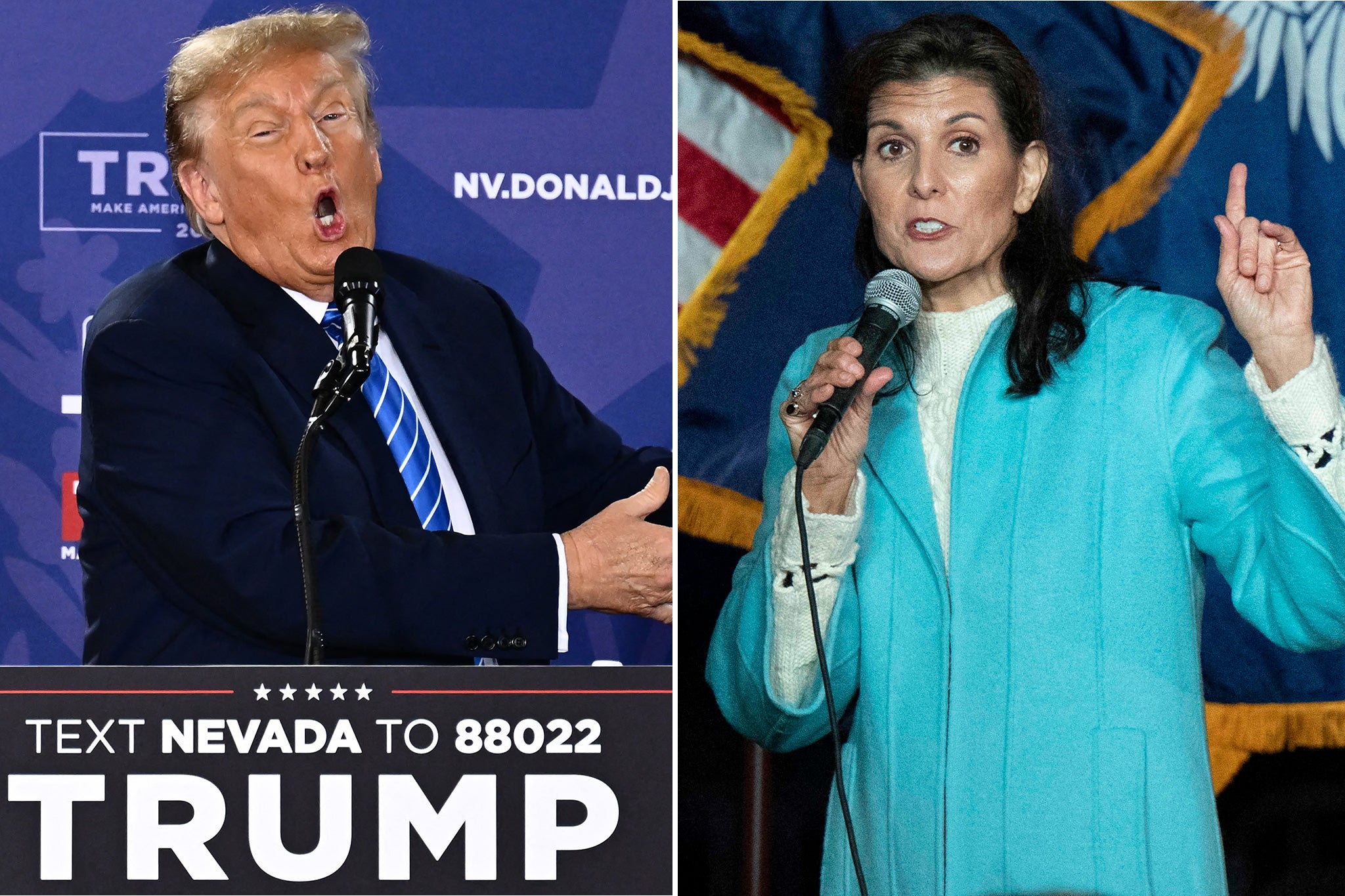The hidden way Trump could still beat Haley in the Nevada primary
The Silver State is staging two parallel Republican events, preventing Donald Trump and Nikki Haley from going head-to-head as they did in Iowa and New Hampshire
As if election season weren’t complicated enough already, Nevada Republicans are holding both a primary and a caucus this year – effectively giving registered conservative voters two chances to declare their preferred candidate for the party’s presidential nomination.
The situation is the result of a dispute between the state and the local branch of the Republican Party over a bipartisan bill passed by Nevada’s state legislature in 2021.
That bill stipulated that the Silver State must hold political primaries if more than one candidate is in contention for a given race, doing away with the old party-run caucus system traditionally employed.
As a result, a mandatory state-run Republican primary will be held on Tuesday 6 February.
However, the local GOP pushed back against the new rule and organised its own caucus for Thursday 8 February, banning candidates from appearing in both events.
This odd state of play has divided the remaining contenders into two camps and means that Nikki Haley and Donald Trump will not go head-to-head this time around, as they did in Iowa and New Hampshire.
Ms Haley will instead face three lesser-known candidates – John Anthony Castro, Heath V Fulkerson and Donald Kjornes – in Tuesday’s primary while Mr Trump is only up against Texas pastor Ryan Binkey in the caucus on Thursday, with all other challengers having long since dropped out of the running.
As a result, Ms Haley and Mr Trump are both expected to win their parallel contests with ease.
But the state’s 26 delegates will only be assigned to the winner of the caucus, making any victory in the primary for the former UN ambassador almost entirely symbolic.

That said, a big performance from Ms Haley revealing a groundswell of conservative support could provide her campaign with some much-needed momentum ahead of the next, much-more-significant primary taking place later this month in her native South Carolina, which threatens to decide the future of her bid for the nomination even before we arrive at Super Tuesday on 5 March.
Despite Mr Trump’s name not appearing on the ballot in the primary, his supporters could nevertheless find it worthwhile to attempt to derail Ms Haley’s inevitable win to stop any such surge in popularity from registering.
Instead of casting their vote for one of her rivals listed on the ballot, they could simply choose to tick the box marked “None of these candidates” instead.
Such a step would stand as both an explicit protest vote against her candidacy and an implicit endorsement of Mr Trump.
This tactic would actually have something in common with the massive write-in campaign that unofficially swept Joe Biden to victory in the Democratic Party’s New Hampshire primary last month, at which the president’s name had also been left off the ballot over another local-level dispute.
A grassroots campaign effort responded by urging Democratic voters to add his name in manually so that his challengers Dean Phillips and Marianne Williamson could not pick up a shock win by default, which would have only served to set off an unhelpful media narrative about his re-election campaign starting out in a state of crisis.
Join our commenting forum
Join thought-provoking conversations, follow other Independent readers and see their replies
Comments
Bookmark popover
Removed from bookmarks